The “horrendously expensive” costs of enforcing Covid-19 protocols on film sets have come under the spotlight in a conversation between three of the biggest independent producers in the UK, who said the measures were impacting the kinds of films they were able to make.
Tim Bevan, co-chairman of Working Title Films, said the costs associated with coronavirus safety measures were “horrifically expensive, and that needs to be brought down”.
Working Title, the production company behind Darkest Hour and The Theory Of Everything, shot Joe Wright’s Cyrano and Lena Dunham’s Catherine, Called Birdy during the pandemic and is in production on Matthew Warchus’ Matilda and Sally El Hosaini’s The Swimmers.
Talking at Screen and Broadcast’s Restart conference on Wednesday (May 19), Bevan said: “Our production department is probably busier than ever because of the Covid protocols and there are all these new experts on film sets, which seem to be very expensive… It’s meant that it’s been very difficult to get the smaller films done.
“You’ve got to believe that somebody somewhere is making a lot of money out of this pandemic, particularly around movie sets. But you need to keep everybody safe and you don’t want Covid to stop you.”
Watch the session in full, above.
Iain Canning, joint managing director of See-Saw Films, agreed and said: “It’s incredibly expensive. We would not have been able to make The King’s Speech during this period of time. The difference of the Covid costs on top of the budget would have taken the whole production value out of the production.”
See-Saw is working on drama series include Slow Horses and The Essex Serpent for Apple TV+ and Heartstopper for Netflix and is in post-production on Jane Campion’s The Power Of The Dog and John Madden’s Operation Mincemeat.
“It’s a very, very complicated moment for independent films that have some scale or ambition to them… That’s our biggest concern at the moment,” added Canning.
Alison Owen, founder of Monumental Pictures, whose own credits include Elizabeth, Saving Mr Banks and Suffragette, said Covid protocols had added about 20% to the cost of making features and between 10-12% on TV.
“The challenge is figuring out who’s going to pay for that, because the people that you’re selling to in a marketplace aren’t going to pay any extra for a movie or TV series because you’ve covered your Covid costs,” said Owen.
“It’s trying to sort out the box ticking from the common sense that’s irritating… I find the movies frustrating because you know it’s not really 20% and there’s ways of getting that down. But a lot of the time, with the studios, you’re not allowed to do that because it has to follow a certain formula that someone in California has decided, which is restricting it.”
Monumental, which shot season three of BBC comedy series Ghosts during the pandemic, is making a crime drama series based on ML Longworth’s novels titled Murder in Provence. “We had a movie that got shunted because the Covid costs got too expensive,” she revealed.
On a previous panel at the Restart conference, location manager Mike Fantasia revealed that Martin Scorsese’s Killers Of The Flower Moon had employed a Covid safety crew of between 75 and 100 for the $200m Apple Original Film.
Challenges for new voices and distribution
The panel also expressed concern that new UK auteurs may struggle to break through due to the challenges to independent films, which include a migration of talent to TV projects.
“There’s not a lot of opportunity for individual directorial voices because a lot of directors are coming in through work on TV shows,” said Bevan. “The Loach’s and the Frears’. Are we going to have filmmakers like that in the future who really express themselves on individual films from quite a young age?”
Owen agreed and added: “The auteurs of the future is something that really does need an eye on… Because we share a language in America, there’s not a natural protectionism that you might get if you were France or Germany or Scandi territories, where there’s always a desire to protect the local culture. We really need to be circumspect about protecting auteur directors like Ken Loach or Stephen Frears coming up and not having their voices diluted because of the Americanization of the culture.”
On whether he would prefer a box-office hit or the label of Netflix’s most popular TV show, Bevan said: “The hit film at the box office, undoubtably. With streamers, there’s inherently quite short life on any project, whereas a hit film at the box office ascends for quite a long time, stays there for quite a long time and then stays around for years and years.
“Had one made Love Actually as a streaming movie and sold it to Netflix, you’d kill yourself every Christmas as they re-showed it and gave you nothing. Whereas because it was made as a movie, that’s not the case.”
But Canning voiced concerns about theatrical distribution for independent films, as cinemas reopen this week following months of closures.
“Cinema chains have had the toughest time, and are going to have to fill the cinemas with blockbusters in order to make money,” said the joint MD of See-Saw, whose drama Ammonite is released by Lionsgate this week, after first being made available through premium online rental.
“We feel like there’s a little window for the Nomadland’s and the Ammonite’s and then cinemas are going to have to make some money… There’s going to be no room for some independent films for a while.”
“The model has changed forever,” added Bevan. “The pandemic has accelerated the future… With the major studios pivoting to SVoD being the engine room rather than theatrical, who knows what the worldwide fallout of that is over the coming years… We’re returning to a very different landscape in terms of cinemagoing.
“It’s going to be very interesting to see how the consumer responds and in what numbers they come back to the cinema, but also how the new economic models work as well… Ultimately, it’ll come down to economics. It’s how you can squeeze the most money out of it, sadly.”
The full video of the session will be available to watch on Screendaily.com later this week.






![The Brightest SunScreen[Courtesy HKIFF]](https://d1nslcd7m2225b.cloudfront.net/Pictures/274x183/3/5/0/1448350_thebrightestsunscreencourtesyhkiff_312678.jpg)













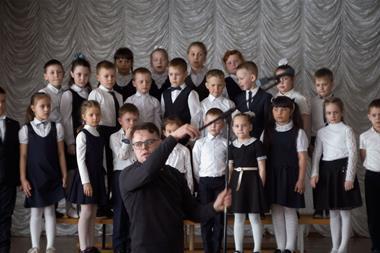
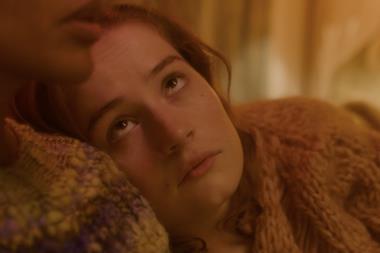
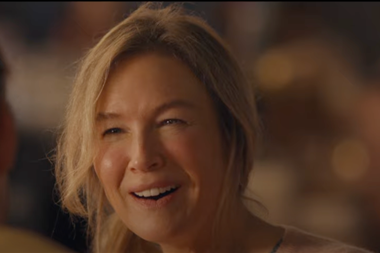
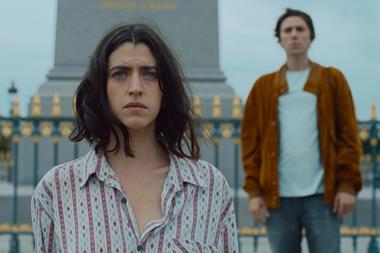

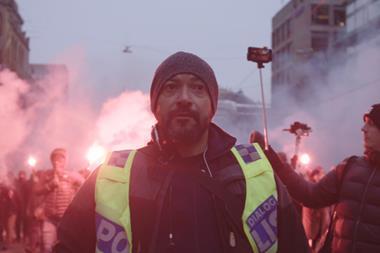
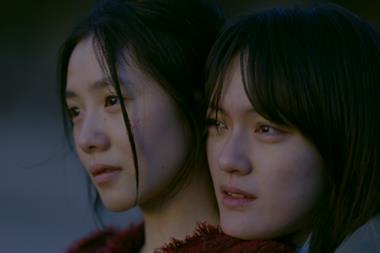
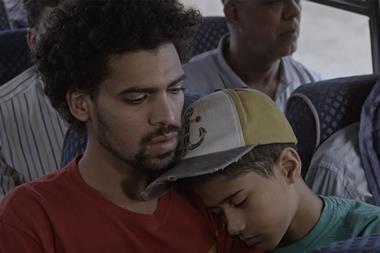







No comments yet